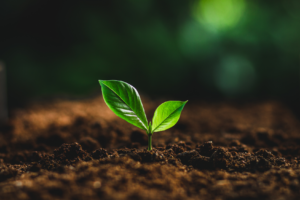While I am always ready to welcome the next emerging season, I think that springtime is my favourite. Isn’t it remarkable how the world transforms with the arrival of spring? The once-bare branches begin to show signs of life, blossoms start to appear, and the air carries the promise of warmth and growth. This seasonal shift is not just a change in the weather. It is a vivid reminder of the cycles of renewal and rejuvenation inherent in nature — and in us.
Spring Cleaning for the Soul
Spring cleaning: a tradition that prompts us to freshen up our homes and clear out the clutter accumulated over the long winter months. But what if we extended this practice beyond our physical spaces to include our mental and emotional environments? Imagine the clarity and freedom that could come from letting go of outdated beliefs or shedding the heavy weight of past grievances. Making time for private and dare I say, ‘fearless’ reflection, can help us pluck the weeds choking out the space for a new tender and more intentional beauty.
The Science of Growth: Learning from Nature
Nature’s resilience in spring, marked by new buds and fresh leaves, mirrors our own human capacity for growth and adaptation. This isn’t just poetic imagery. This analogy is grounded in scientific research that highlights our incredible potential to evolve and flourish throughout all stages of our lives.
Trailblazers in the fields of traditional and alternative medicine, business, and psychology, study, and attest to the power of conscious design and development. Research reveals some exciting and empowering concepts:
Neuroplasticity: Modern neuroscience is increasingly validating the concept of neuroplasticity, which is our brain’s ability to reorganize itself by forming new neural connections throughout life. This ability underpins our capacity to learn new skills, adapt to change, and recover from injuries. Research by Dr. Norman Doidge, Dr. Joe Dispenza, and many others has shown that engaging in new learning experiences while utilizing specific brain-training exercises can stimulate brain growth, heal the body, and enhance cognitive function, regardless of age.
John Assaraf applies neuroplasticity principles to help hundreds of thousands of entrepreneurs and business owners realize greater success in their business and personal lives. I have had the privilege of working with John, and he generously provided our Leadership Series members with complimentary access to his guided ‘innercise’ programs.
Resilience Training: Psychologists have identified resilience, the ability to bounce back from adversity, as a key component of psychological health. Studies by Dr. Martin Seligman and his colleagues in positive psychology have demonstrated that resilience can be strengthened through specific strategies, such as fostering a positive outlook, building strong social connections, and facing challenges head-on. These strategies empower individuals to adapt to life’s changes and stresses more effectively.
Growth Mindset: Dr. Carol Dweck’s work on the growth mindset reveals that individuals, especially children, who believe their talents and abilities can be developed through hard work, good strategies, and input from others tend to achieve more than those with a more fixed mindset. She talks about the path to the future with the power of the “yet or not yet” rather than being stuck in the “tyranny of the now.” This perspective encourages a focus on continuous learning and persistence in the face of setbacks, closely mirroring the adaptive and resilient nature of spring’s growth.
Adaptation and Well-being: The Harvard Study of Adult Development, one of the longest-running studies of adult life, has found that the quality of our relationships and our ability to adapt to life’s challenges are central predictors of health and well-being. This research underscores the importance of adaptability and personal growth in maintaining not only our mental health but our physical health as well.
Drawing from the resilience of the natural world and the insights provided by these studies, it’s clear that both nature and humankind possess a profound capacity for growth and adaptation. While many of these authors’ books share a cherished space on my bookshelf, I am reminded of the necessity of advancing from reading to doing and doing to “being” to unleash the power of their words.
The vision of a humble bud can serve as an inspiration for new beginnings while science-backed understanding offers tested tools and strategies. All of this wrapped up in the warm promise of a spring day!
Rhonda Latreille, MBA, CPCA
Founder & CEO
Age-Friendly Business®
Body: Brain Impacting The Body

The principles of neuroplasticity and resilience extend beyond mental agility, offering significant physical benefits. For instance, engaging in activities that challenge the brain, like learning a new language or instrument, has been linked to a lower risk of dementia, as reported in studies published in the journal “Neurology.” Additionally, the practice of resilience-building techniques, such as positive social interactions and adaptive stress management, has been associated with improved cardiovascular health, as evidenced by research in the “American Journal of Cardiology.” These findings highlight the profound impact that mental and emotional well-being strategies can have on our physical health, underscoring the interconnectedness of our mind and body in the pursuit of overall wellness.
Spirit: Living a Life
“Instructions for living a life: Pay attention. Be astonished. Tell about it.”
Mary Oliver, American Poet.





